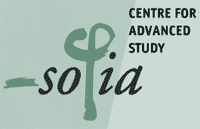PRICE AND PREJUDICE. BULGARIAN CASES OF CLOTHING AND IDENTITY
PRICE AND PREJUDICE. BULGARIAN CASES OF CLOTHING AND IDENTITY
Author(s): Ilia IlievSubject(s): Social Sciences
Published by: Centre for Advanced Study Sofia (CAS)
Summary/Abstract: The massive use of second-hand clothes is one of the many innovations practiced by Bulgarian consumers over the last decade. The fi rst shops for secondhand clothes, mostly of West European origin, appeared immediately after the fall of the socialist regime in 1989. At the beginning, they were located in back streets, backyards, modest spaces, and the information about them circulated among informal consumer networks. Slowly, the shops gained in profi tability and respectability, and ten years later we fi nd them in central streets, the heart of the towns, under neon shop-signs announcing their existence with a specifi c modest dignity or humor. Buying and using second-hand clothes to such an extent is a relatively new phenomenon in Bulgaria and it has encountered specifi c obstacles, related to local tradition. For many Bulgarians, using clothes previously belonging to another implied either a close personal relationship to the prior owner or lower social standing, with a variety of shades between these positions. At least at the beginning, buying and wearing second-hand clothes was far from an anonymous, impersonal transaction. It involved intense work of symbolic appropriation and quite often, it led to refl ection on the relationship between old and new owner. Almost inevitably, this led to analysis of the imagined West Europeans who used to don these clothes and the new Bulgarian owners, similarities and dissimilarities between them, and the symbolic links between Bulgarian customers and their imagined Western counterparts.
Journal: CAS Sofia Working Paper Series
- Issue Year: 2007
- Issue No: 1
- Page Range: 1-17
- Page Count: 17
- Language: English

